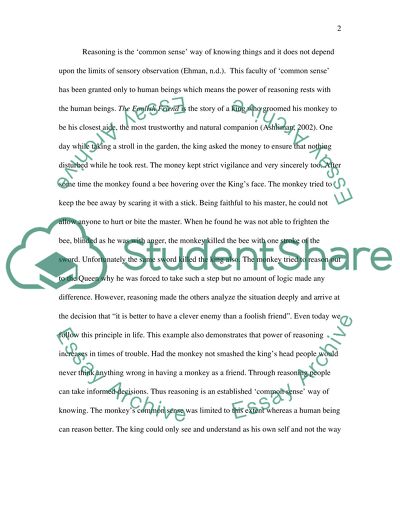Cite this document
(“We See and Understand Things not as They Are but as We Are Essay”, n.d.)
We See and Understand Things not as They Are but as We Are Essay. Retrieved from https://studentshare.org/philosophy/1557017-tok-essay-we-see-and-understand-things-not-as-they-are-but-as-we-are-discuss-this-claim-in-relation-to-at-least-two-ways-of-knowing
We See and Understand Things not as They Are but as We Are Essay. Retrieved from https://studentshare.org/philosophy/1557017-tok-essay-we-see-and-understand-things-not-as-they-are-but-as-we-are-discuss-this-claim-in-relation-to-at-least-two-ways-of-knowing
(We See and Understand Things Not As They Are But As We Are Essay)
We See and Understand Things Not As They Are But As We Are Essay. https://studentshare.org/philosophy/1557017-tok-essay-we-see-and-understand-things-not-as-they-are-but-as-we-are-discuss-this-claim-in-relation-to-at-least-two-ways-of-knowing.
We See and Understand Things Not As They Are But As We Are Essay. https://studentshare.org/philosophy/1557017-tok-essay-we-see-and-understand-things-not-as-they-are-but-as-we-are-discuss-this-claim-in-relation-to-at-least-two-ways-of-knowing.
“We See and Understand Things Not As They Are But As We Are Essay”, n.d. https://studentshare.org/philosophy/1557017-tok-essay-we-see-and-understand-things-not-as-they-are-but-as-we-are-discuss-this-claim-in-relation-to-at-least-two-ways-of-knowing.


